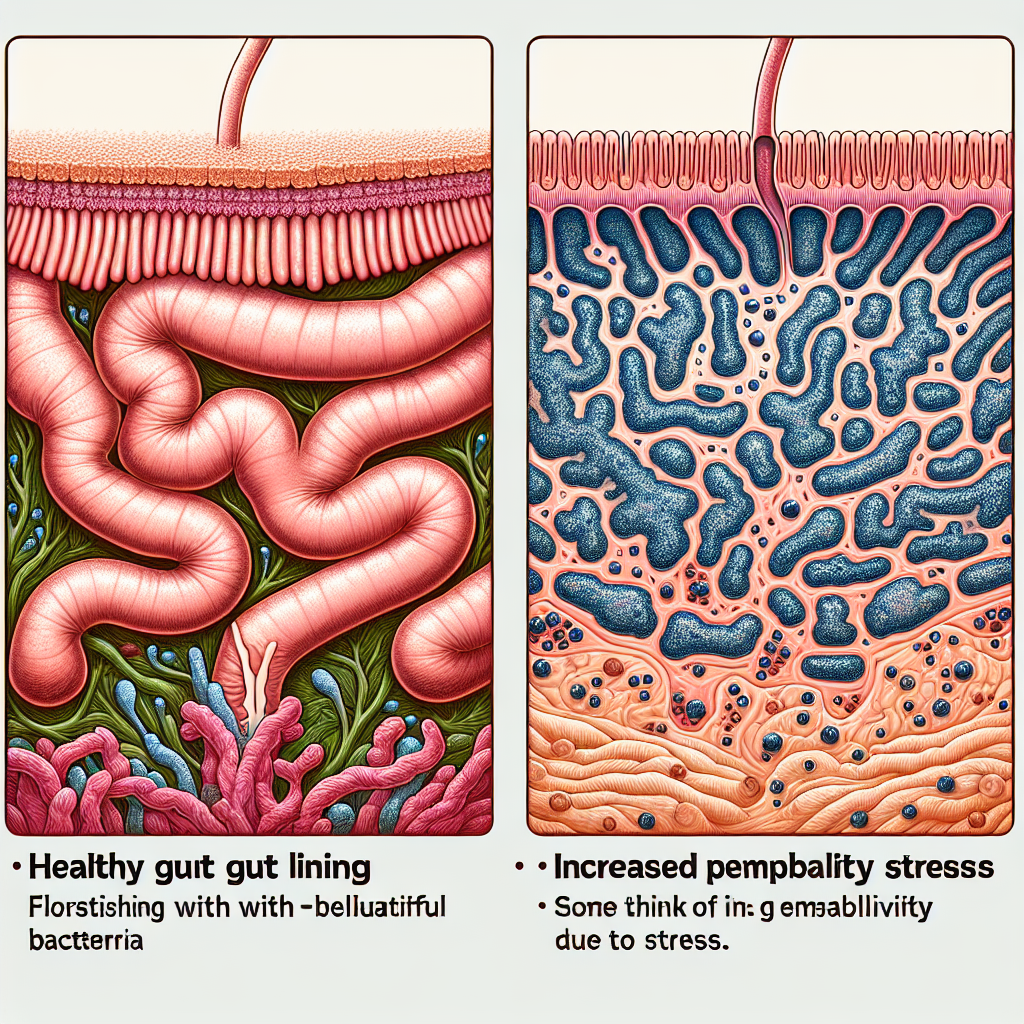Emotional stress is not merely a state of mind; it has tangible effects on our physical health, particularly on gut function. The intricate connection between the brain and the digestive system is so profound that the gut is often referred to as the "second brain". Understanding this connection can help us appreciate the significant impact emotional stress can have on our gut health.
The Brain-Gut Connection
The brain and the gut are in constant communication through a bidirectional pathway known as the gut-brain axis. This communication network involves neural pathways, hormones, and immune system components that work synergistically to maintain gut function and respond to psychological and physical stressors.
When emotional stress is chronic or particularly intense, it can disrupt this communication, leading to a range of digestive issues. This is because stress can alter the gut’s microbiome, increase gut permeability, and affect the processes of digestion and nutrient absorption.
For those seeking to delve deeper into the specifics of digestive health, Avix Health’s Digestive Health resource provides a wealth of information on maintaining a healthy digestive system.
Stress and the Microbiome
The human microbiome is a complex and dynamic ecosystem of bacteria, viruses, fungi, and other microorganisms living in our bodies, particularly in the gut. These microorganisms play a crucial role in digestion, immune function, and even mood regulation.
Emotional stress can disrupt the balance of this ecosystem, known as dysbiosis, which can lead to digestive discomfort, inflammation, and a weakened immune response. A balanced microbiome is essential for optimal gut health, and stress management is a key factor in maintaining this balance.
Gut Permeability and Stress
Chronic stress can increase the permeability of the intestinal lining, often referred to as "leaky gut." This condition allows bacteria and toxins to pass into the bloodstream, which can trigger an immune response and inflammation throughout the body.
Inflammation is a significant factor in many gut-related conditions and can contribute to the development of irritable bowel syndrome (IBS), inflammatory bowel disease (IBD), and other digestive disorders. Therefore, managing stress is critical in preventing and managing these conditions.
Digestion and Nutrient Absorption
Stress can impair the body’s ability to digest food and absorb nutrients effectively. It does this by altering stomach acid production and gut motility. When we’re stressed, our bodies are in a "fight or flight" mode, which diverts energy and blood flow away from the digestive system.
This can lead to a variety of symptoms, including indigestion, bloating, and changes in bowel habits. Ensuring proper digestion and nutrient absorption is key to overall health, and stress management plays a vital role in this process.
For insights into how stomach acid levels affect nutrient absorption, the article How Stomach Acid Levels Affect Nutrient Absorption offers a detailed exploration of the topic.
Strategies for Managing Stress to Improve Gut Health
Recognizing the impact of emotional stress on gut function is the first step towards mitigating its effects. Here are several strategies for managing stress:
Mindfulness and Meditation
Mindfulness meditation has been shown to reduce stress and improve gut health. It involves focusing on the present moment and accepting it without judgment, which can help calm the mind and reduce the body’s stress response.
For those interested in exploring this further, consider reading The Benefits of Mindfulness Meditation for Digestive Health, which discusses the advantages of incorporating mindfulness into your daily routine.
Regular Exercise
Physical activity is a well-known stress reliever. It can help reduce the production of stress hormones and increase the release of endorphins, the body’s natural painkillers, and mood elevators. Furthermore, exercise promotes healthy gut motility, which is essential for digestion and regular bowel movements.
The effects of exercise on gut health are further elaborated in the article How Exercise Promotes Healthy Gut Motility.
Diet and Nutrition
Eating a balanced diet rich in fiber, probiotics, and nutrients can support the microbiome and reduce the impact of stress on the gut. Certain foods have been shown to have a calming effect on the brain and, by extension, on the gut.
For a deeper understanding of the role of dietary fats in gut health, Integrating Dietary Fats for Optimal Gut Health provides insights into how fats can be included in a gut-friendly diet.
Adequate Sleep
Sleep is crucial for both brain and gut health. Lack of sleep can exacerbate stress and negatively impact gut function. Establishing a regular sleep schedule and creating a restful environment can help improve sleep quality and, in turn, gut health.
Support Systems
Joining support groups or seeking the help of a therapist can provide strategies for managing stress and its effects on the body. Sharing experiences with others who are facing similar challenges can be incredibly therapeutic and reduce feelings of isolation.
External Resources and Further Reading
To further understand the complexities of the gut-brain connection and the impact of stress on gut function, consider exploring these external resources:
- A comprehensive review on the microbiome and stress published in the journal Psychoneuroendocrinology offers insights into how psychological stressors can affect the microbial content of the gut.
- The American Psychological Association provides an informative resource on stress and health, including how stress influences various bodily systems.
- Research published in the World Journal of Gastroenterology discusses the link between stress and intestinal barrier function, offering a scientific perspective on how stress can lead to increased gut permeability.
- A study examining the relationship between exercise, stress, and gut motility featured in the American Journal of Physiology provides evidence supporting the role of physical activity in maintaining healthy digestive function.
- The International Foundation for Gastrointestinal Disorders offers resources on various GI conditions, including those exacerbated by stress, and provides strategies for managing symptoms.
In conclusion, emotional stress has a profound impact on gut function. By understanding this connection and implementing stress management techniques, individuals can significantly improve their gut health and overall well-being. It is important to remember that while self-care is vital, seeking professional medical advice is essential when dealing with persistent or severe digestive issues.



